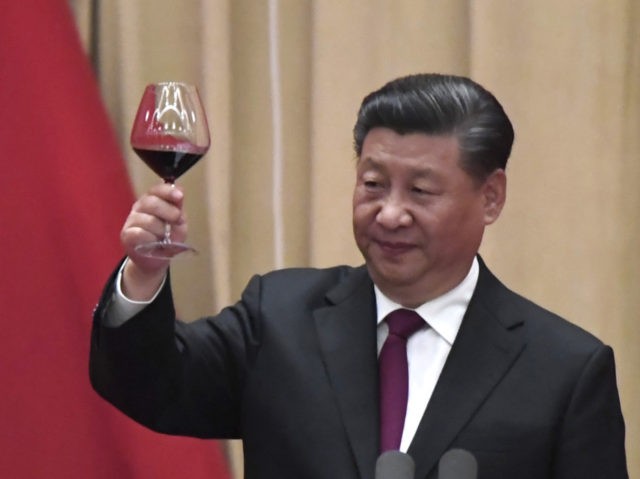A former president of the European Parliament has accused China of “hoarding food stocks”, which he claims has contributed to rising food prices.
Antonio Tajani — a former president of the European Parliament and current MEP for Central Italy — demanded that Brussels intervene to stabilise agricultural prices and to take countermeasures against the food hoarding practices of Beijing.
“According to the UN, in one year, agricultural prices have risen by 30 per cent, also due to China’s policy of hoarding food stocks,” he wrote in a a letter to the European Commission per the Italian newspaper Il Giornale.
The MEP claimed that “69 per cent of the world reserves of corn, 60 per cent of those of rice and 51 per cent of wheat are now in Chinese hands.”
“In the first 8 months of 2021, China spent on food imports approximately $98.1 billion, also buying through giants in the sector indirectly controlled by the Beijing government,” the letter — which was also signed by the Italian Forza Italia-Ppe delegation to the European Parliament — continues. “The Wh Group, the leading Chinese meat operator, has acquired companies in Germany, Poland and the Netherlands.”
Tajani also noted the effect the current energy crisis is having on food prices in Europe, the crisis itself an in-part result of the bloc’s reliance on Russian gas, as well as green energy alternatives which have yet to pick up the slack.
“The current energy crisis also risks having an impact on the food supply chain,” Tajani’s letter reads. “Considering that the increase in agricultural prices is detrimental to citizens, the European Commission is asked what measures it intends to take to increase European production and stocks of agricultural products.”
Tajani’s claims line up with those found in a recent report by Nikkei Asia, which claims that China will soon accumulate the majority of the world’s maize, rice and wheat reserves.
Qin Yunyun, an official at China’s National Food and Strategic Reserves Administration, has said that the nation is keeping its food stockpiles at a “historically high level”.
“Our wheat stockpiles can meet demand for one and a half years,” Nikkei reports the official as saying. “There is no problem whatsoever about the supply of food.”
European Union leaders reportedly blocked attempts from the United States, Britain, and Canada to call out the Chinese Communist Party (CCP) for the use of slave labour in Xinjiang. https://t.co/1q2b0C8SAF
— Breitbart News (@BreitbartNews) June 14, 2021
The European Union’s economic reliance on Beijing was put on full display during the first year of the Chinese coronavirus pandemic, notably Italy, which sent €1.57 billion to the communist regime in exchange for medical supplies after becoming the first European country to be hard hit by the Wuhan virus.
As a whole, the European Union saw China become its largest trading partner in 2020, overtaking the United States for the first time in the bloc’s history with 586 billion euros exchanged in trade between the EU and China.
Despite backtracking on a massive trade deal with the communist state after a series of tit-for-tat sanctions earlier this year, the newly elected chancellor of Germany, Olaf Scholz, has reportedly assured Chinese dictator Xi Jinping that he will push for the investment pact to “take effect as soon as possible,” according to a Chinese readout of the phone call between the two leaders.
Scholz reportedly said he will look “to host a new round of German-Chinese government consultations, strengthen practical cooperation in clean energy, digital economy and service industries.”
Under the leadership of his predecessor, Angela Merkel, Germany’s economy became deeply intertwined with China, which became its top trading partner in 2018. Leading German companies such as Volkswagen and BMW have faced accusations of raking in huge profits off the back of slave labour in the Xinjiang region, where millions of Uyghurs and other ethnic minorities are alleged to have been confined to concentration camps.
Aside from supply chain issues incurred through reliance on China, Germany and other EU nations have also faced criticism for their dependence on energy from Vladimir Putin’s Russia, with former EU Council president Donald Tusk pronouncing that former Chancellor Angela Merkel’s “biggest mistake” was her approval of the Nord Stream 2 pipeline from Russia.
Captives of Russia: European Energy Prices Soar as Putin Holds Back Gas Supplies https://t.co/HPddwWFyil
— Breitbart London (@BreitbartLondon) November 8, 2021

COMMENTS
Please let us know if you're having issues with commenting.